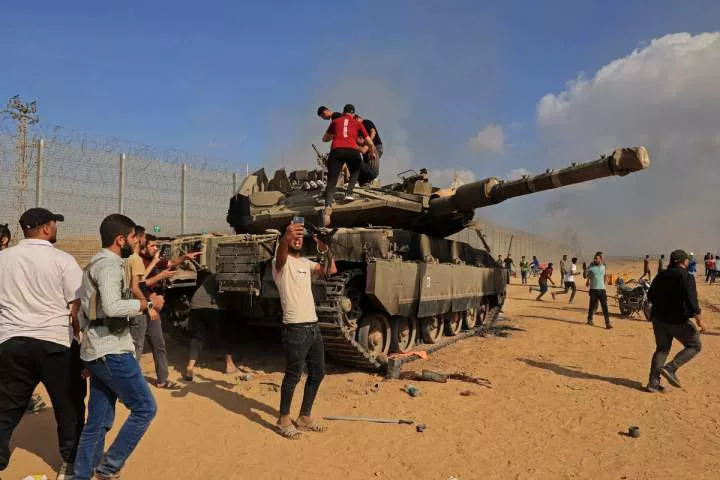
Palestinians take control of an Israeli Merkava battle tank after crossing the border fence with Israel from Khan Yunis in the southern Gaza Strip on October 7, 2023. - Barrages of rockets were fired at Israel from the Gaza Strip at dawn as militants from the blockaded Palestinian enclave infiltrated Israel, with at least one person killed, the army and medics said. (Photo by SAID KHATIB / AFP)
The United Nations has said over 260,000 people have been forced to flee their homes in the Gaza Strip, as heavy Israeli bombardments from the air, land and sea continue to hit the Palestinian enclave.
It added that fierce fighting has left thousands dead on both sides since Hamas launched a surprise assault on Saturday, spurring Israel's reprisal bombing campaign.
"Over 263,934 people in Gaza are believed to have fled their homes," said UN humanitarian agency OCHA said in an update Tuesday, warning that "this number is expected to rise further".
It said that around 3,000 people had been displaced "due to previous escalations", prior to Saturday.
"More than 1,000 people have been killed in Israel in the worst attack in the country's 75-year history, while Gaza officials have reported 900 people killed since the air strikes began," UN added.
The bombing campaign has destroyed more than 1,000 housing units, and 560 have been so severely damaged they are uninhabitable, OCHA said, citing Palestinian authorities.
"Among the displaced, nearly 175,500 people sought shelter in 88 schools run by the UN agency supporting Palestinian refugees, UNRWA.
"More than 14,500 others had fled to 12 government schools, while close to 74,000 were estimated to be staying with relatives and neighbours or seeking shelters in churches and other facilities.
The number of displaced people inside of Gaza "represents the highest number of people displaced since the 50-day escalation of hostilities in 2014," it said.
"Meeting basic needs is becoming increasingly challenging for those who have not been displaced," OCHA warned.
Israel has imposed what it called a "complete siege" on the already blockaded Gaza Strip, cutting off food, water, fuel and electricity - a move that UN Secretary-General Antonio Guterres warned would worsen an already dire humanitarian situation.

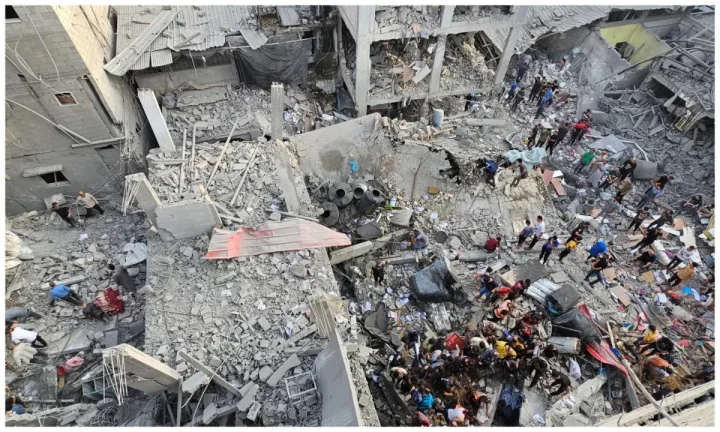
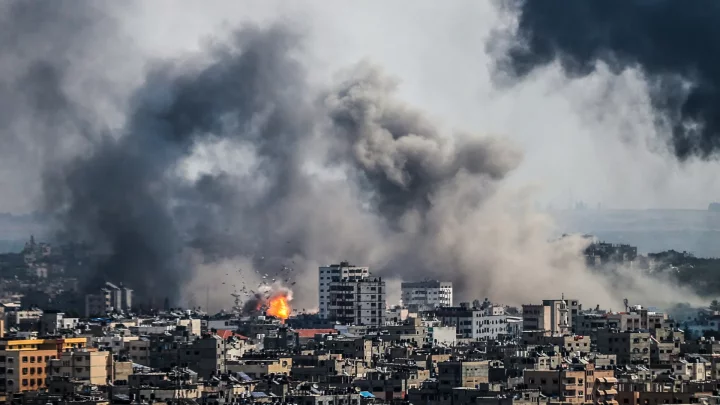

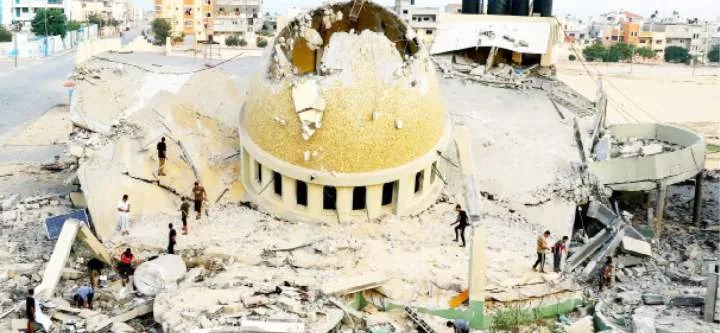
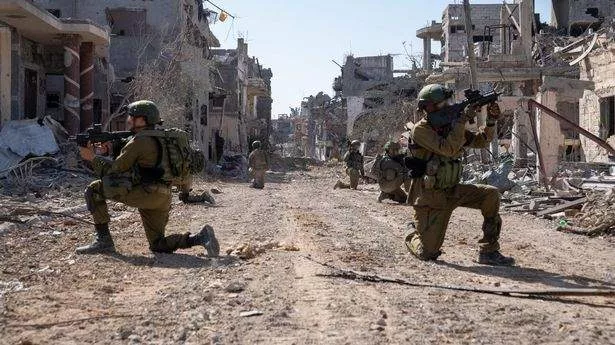
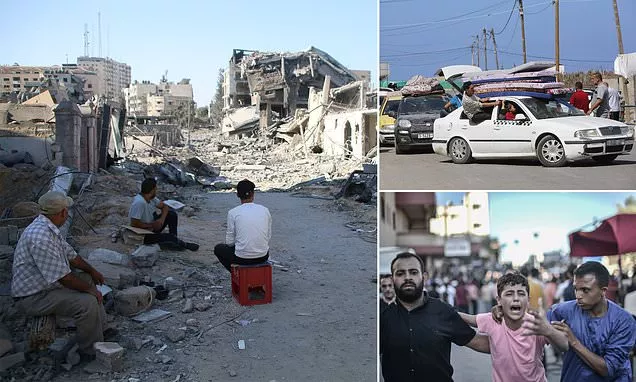










Comments